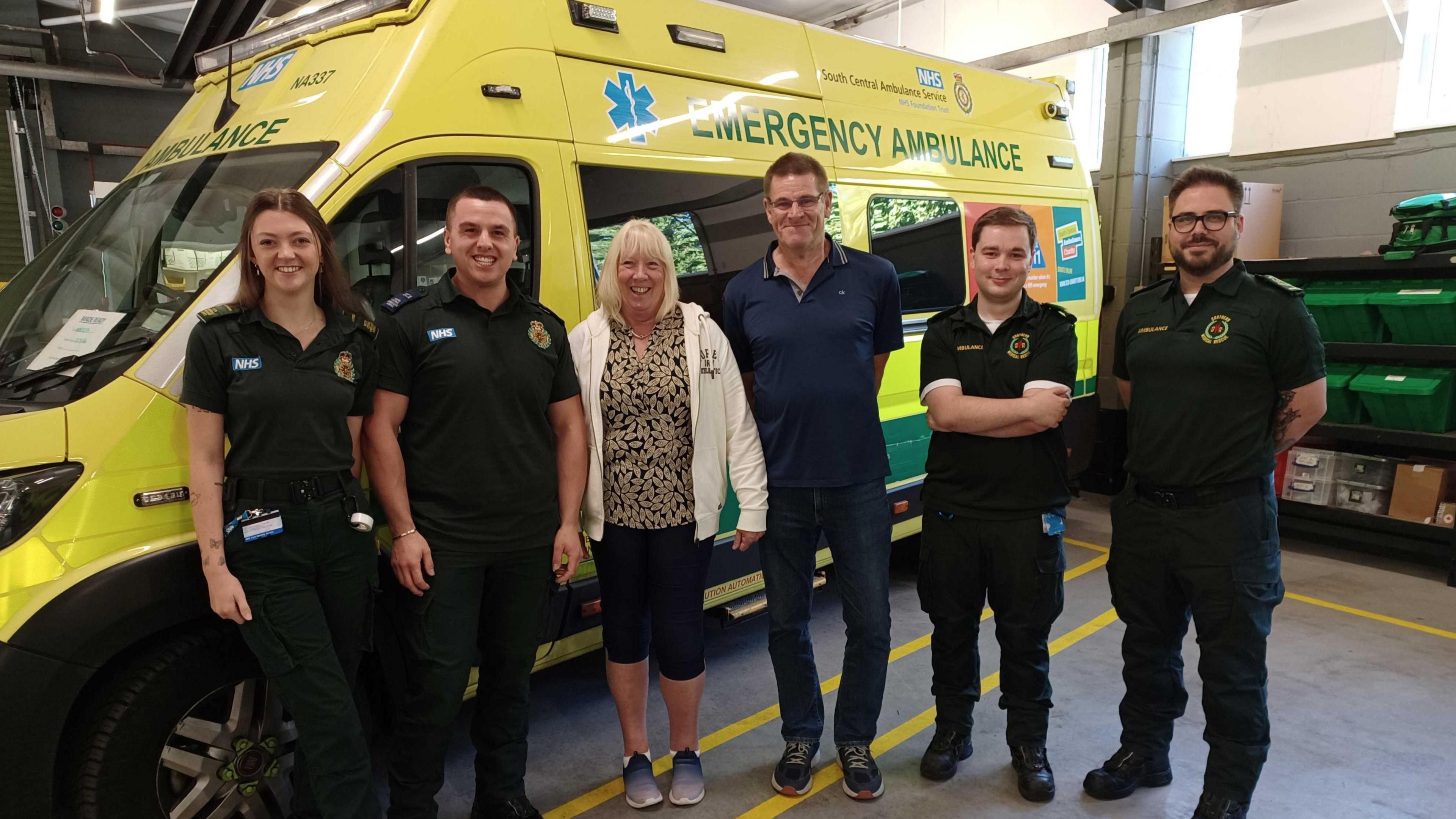Heathrow airport worker reunited with lifesaver
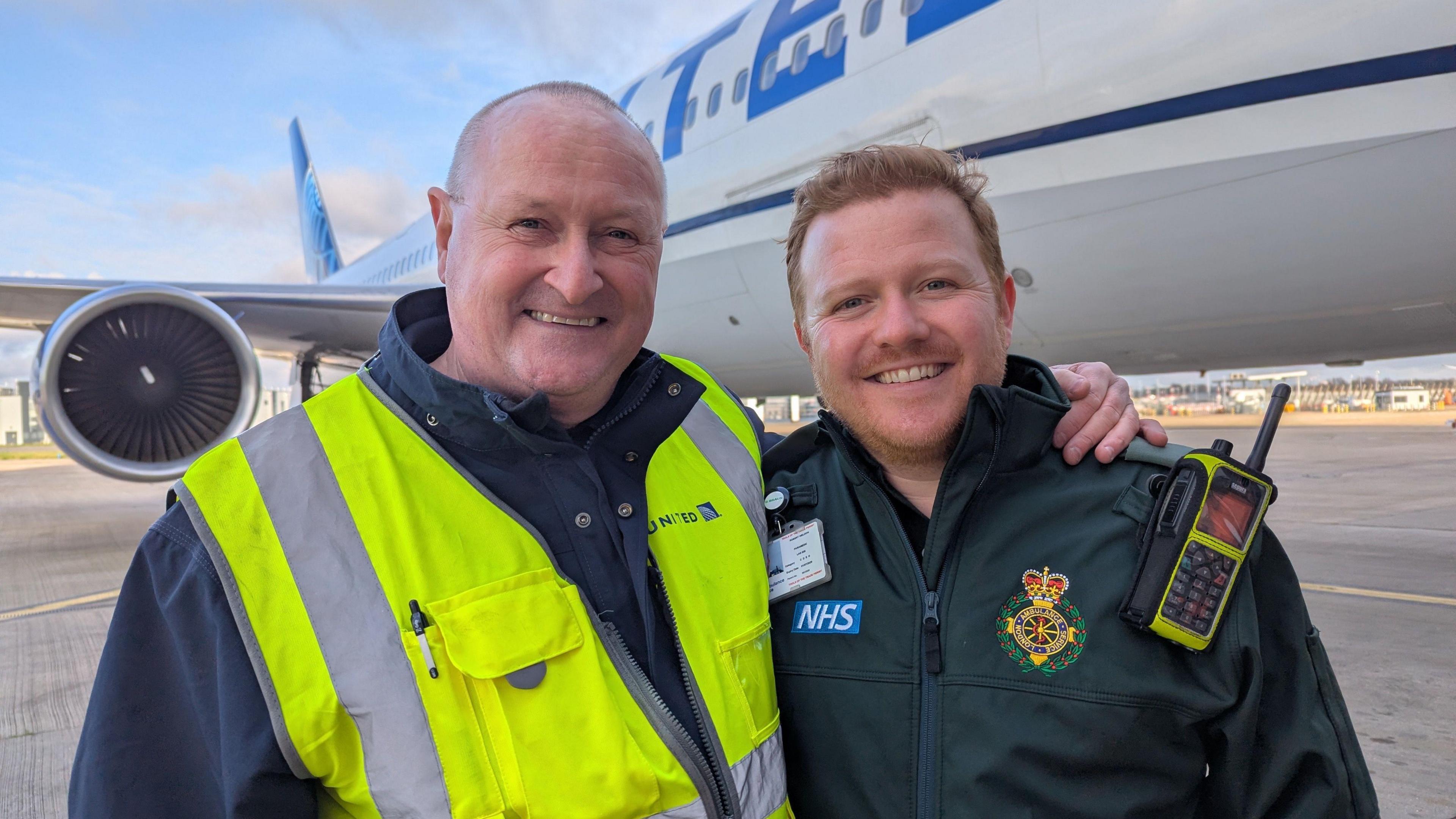
John Walton (left) has now been able to thank paramedic Rob Weldon in person
- Published
“The frightening part is, I didn’t actually have any symptoms. I remember getting out of the aircraft, turned around, and closed the door and that was it.”
For John Walton, it was just another day in his job as an airport worker at Heathrow.
But then suddenly, while he was working on an aircraft near the taxiway, his heart stopped.
When he collapsed, his colleagues at United Airlines rushed to his aid.
They carried out first aid and used a defibrillator to restart his heart until the paramedics arrived, including Rob Weldon.
Mr Weldon happened to be on shift elsewhere in the airport and reached the scene within about six minutes.
They all helped to stabilise Mr Walton before taking him to Harefield Hospital in Hillingdon, where he spent several days in a coma.
Fourteen months on from his heart attack, Mr Walton is mostly back to full health and back to work as a ramp agent at the airport.
And he has now finally been able to thank Mr Weldon in person, after they met properly for the first time at a reunion organised by their respective colleagues.
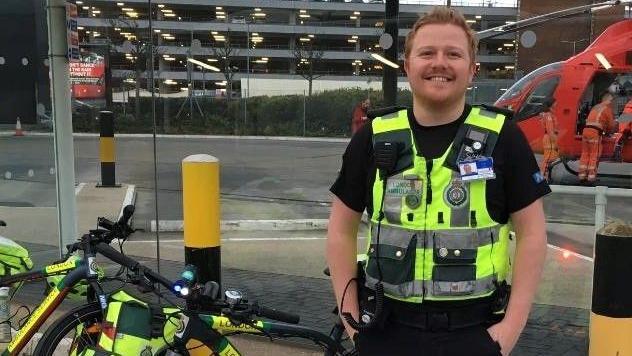
Paramedic Rob Weldon happened to be on shift at the airport
"Everyone around me pulled as a team and pulled me through it," said Mr Walton.
"They saved my life. How do I thank someone for it? Thank you is not enough," he added.
Mr Weldon said: "You don’t often hear about what happened to the people you treat, let alone see them again, so this is really nice.”
He added: "If it wasn’t for his colleagues doing CPR straightaway and defibrillating him straightaway, he wouldn’t be here today, so they are the heroes in this story!"
The events of that day in August 2023 have changed Mr Walton.
The 59-year-old from East Grinstead says he now lives life to the full and is looking to buy a boat to use the River Thames.
'Every minute counts'
London Ambulance Service (LAS) consultant paramedic, Mark Faulkner, said: "At Heathrow we see cardiac arrest survival rates which are dramatically better than other areas of the capital.
"This is because many of the staff are trained in basic resuscitation skills and there are numerous readily accessible public defibrillators."
He added: "Each minute that passes before chest compressions begin and a defibrillator is used dramatically reduces the chances of survival."
LAS says it found 150 neighbourhoods in London where public access to defibrillators is limited or non-existent, affecting chances of survival.
The service is campaigning to get defibrillators placed in areas where they are most needed.
Listen to the best of BBC Radio London on Sounds and follow BBC London on Facebook, external, X, external and Instagram, external. Send your story ideas to hello.bbclondon@bbc.co.uk, external
Similar stories across the BBC
- Published27 November 2024
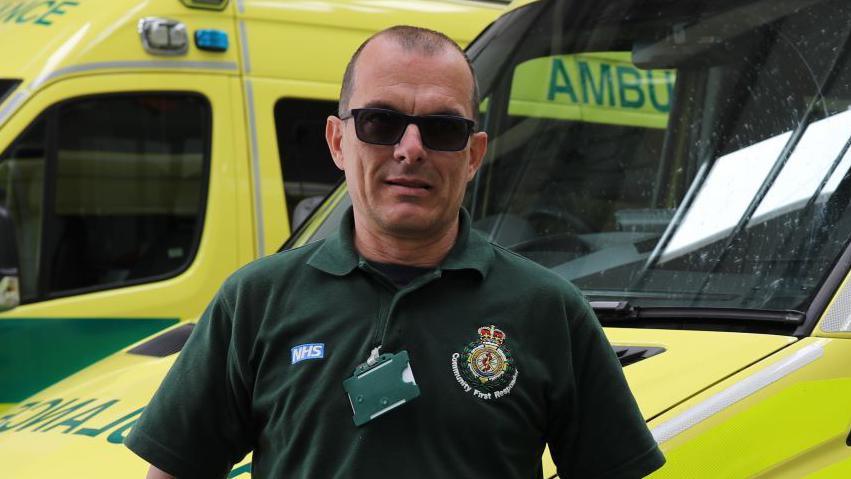
- Published1 December 2024
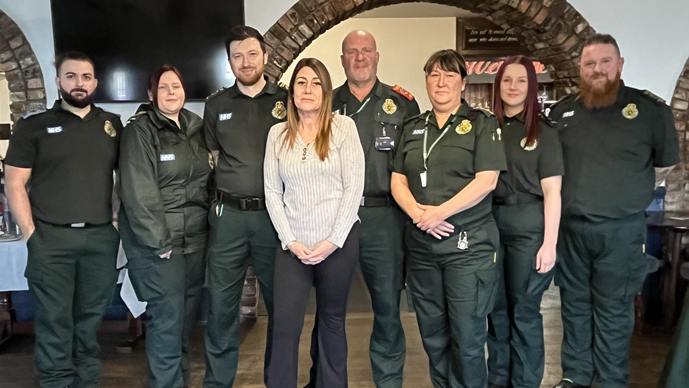
- Published1 November 2024
